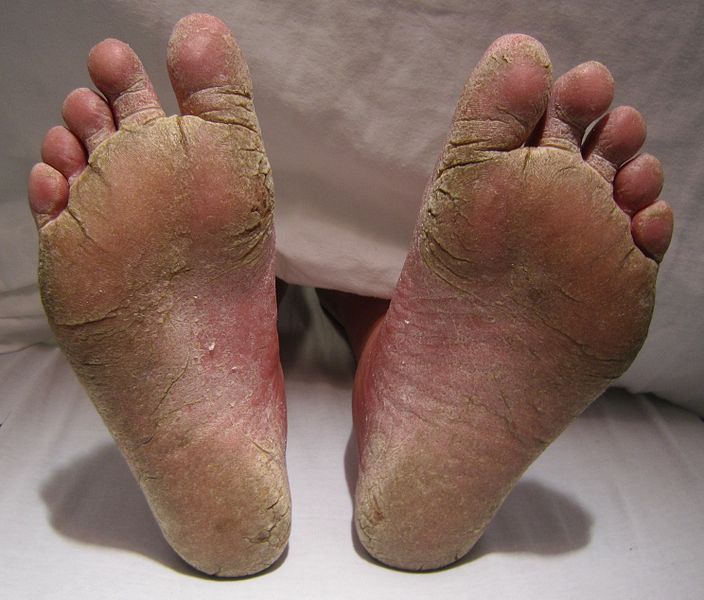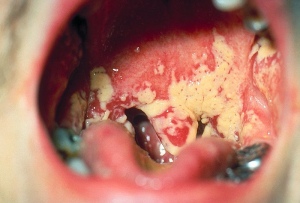Fungal skin infections come in many forms, and as such, there is a wide array of treatments. Fortunately, many of these treatments are simple and straightforward, and available without a prescription. The trick to finding the right treatment for you is locating the source of the problem.
Athlete’s foot. Anyone can get this fungal yeast infection, active or not. Athlete’s foot is extremely contagious and easily spreads in public areas that are damp, like swimming pools, showers, changing areas, and gym locker rooms. Athlete’s foot can be treated with OTC antifungal creams, sprays, or powders. Look for Tinactin, Ting, Lotritmin, and Lamisil.
Jock itch. Again, this common fungal skin infection is not just for jocks. However, it does affect men, in the jock strap area. Jock itch is caused by the same fungus that causes athlete’s foot, and it is therefore treatable with the same OTC remedies: Ting, Tinactin, Lamisil, and Lotrimin. Again, these treatments come in powder, cream, or spray form, so experiment with a few before you decide what works best for you.
Diaper rash. Not all diaper rashes are the same, and your baby’s diaper rash may actually be a fungal skin infection, also sometimes called a diaper rash yeast infection. Diaper rashes of this type tend to last much longer than your average diaper rash, and they are accompanied by tiny blisters that radiate outward from the infected area. To treat diaper rash yeast infections, use an OTC antifungal cream like Nystatin, Lotrimin, or Micatin, and be sure to keep the area as clean and dry as possible.
Ring worm. Contrary to popular belief, ring worm is not caused by an actual worm. It is a fungal skin infection that typically creates a ring-like rash. OTC ringworm treatments include ointments like Mycocide, Lotrimin, and Tolnaftate.
Nail bed infection. These are the hardest skin fungal infections to treat, because the microorganisms that cause the infection can take up residence in the nail, itself, which is one very tough barrier to get through. For this reason, the previously mentioned OTC treatments that work for other fungal skin infections simply won’t work for nail bed infections. OTC treatments for these toughies include nail lacquers like Loceryl and topical products that contain undecylenic acid.
Whichever OTC treatment you choose for your fungal skin infection, it is of utmost importance that you finish out the entire duration of the treatment, for as long as the manufacturer suggests and even if it appears as though the infection has dissipated. It is also worth nothing that if your infection seems to be chronic, it might be indicative of a much more serious, systematic illness, in which case you should consult with your physician for the best treatment plan and visit some online forums to have your Candida crusher questions answered.
Common OTC Remedies for Fungal Skin Infections






